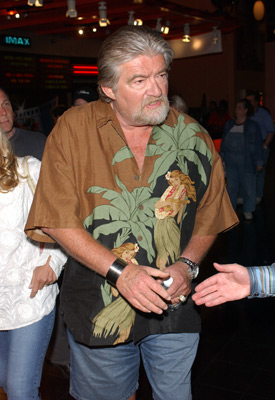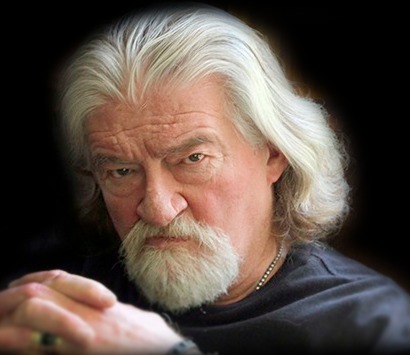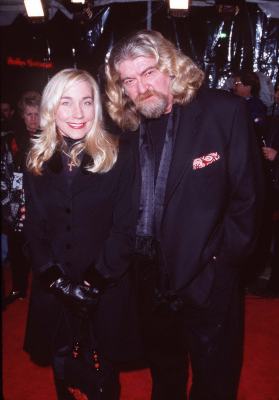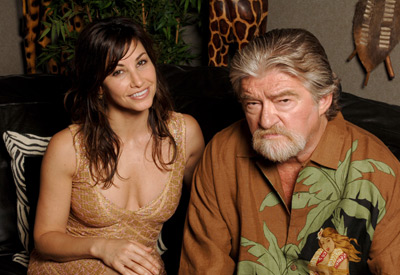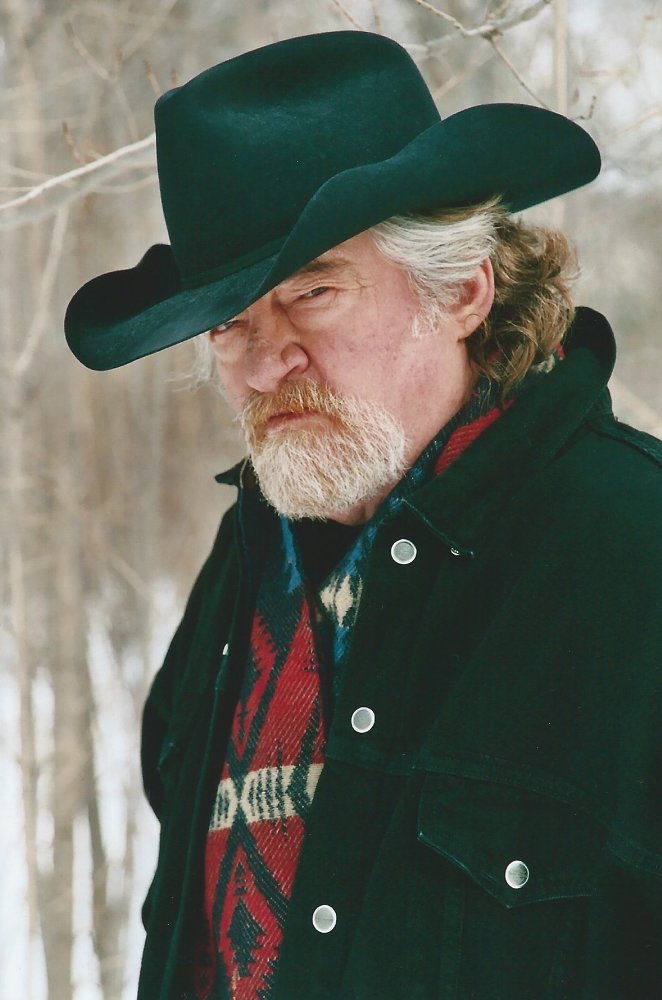
Joe Eszterhas
Birthday: 23 November 1944, Csakanydoroszlo, Hungary
Birth Name: József Eszterhás
Joe Eszterhas was born on November 23, 1944 in Csakanydoroszlo, Hungary as József Eszterhás. He is a writer and producer, known for Basic Instinct (1992), Nowhere to Run (1993) and Flashdance (1983) ...Show More
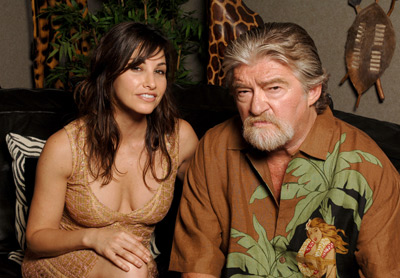
I've always loved the notion of doing movies that provoke people, either move them in their hearts o Show more
I've always loved the notion of doing movies that provoke people, either move them in their hearts or disturb them, but when they leave the theater it sticks with them. Hide
I wrote Basic Instinct (1992) in a blind frenzy while listening almost non-stop to the Rolling Stone Show more
I wrote Basic Instinct (1992) in a blind frenzy while listening almost non-stop to the Rolling Stones. I didn't outline the script and I didn't know my ending until I was almost two-thirds finished. It exploded out of my head - I kept hearing lines of dialogue and had to hurry to keep up with the voices I was hearing. I woke up at four in the morning and wrote lines of dialogue down. I wrote it in two shifts each day - from nine in the morning till one in the afternoon and from three in the afternoon to eight o'clock at night. From the time I began writing till the day my agent sold it at auction: thirteen days. Hide
[on his autobiography "Hollywood Animal"] It's a very odd feeling now that the book is out and peopl Show more
[on his autobiography "Hollywood Animal"] It's a very odd feeling now that the book is out and people who have read it know everything about you. I felt that if I was going to write a book about my life, it should be very, very truthful. I remember reading John Huston's autobiography, and Huston was a larger-than-life figure who really lived an interesting, roller-coaster kind of life, and the book never gave any hint of the flavor of the life he led. It was written from kind of a superficial, Hollywood point of view, essentially filled, I think, with a lot of lies by omission. I didn't want to write that kind of book about my life. I wanted to write a book where my grandchildren could one day see it and say, "Okay, that's Grandpa. That's the life he led." For better or worse. Hide
Screenwriters are supposed to be neither seen nor heard. I certainly violated that rule. Among other Show more
Screenwriters are supposed to be neither seen nor heard. I certainly violated that rule. Among others. Hide
Anything that I write and I think anything that most screenwriters write, should come from your hear Show more
Anything that I write and I think anything that most screenwriters write, should come from your heart and gut and soul, otherwise it's not going to be very good. If you care about what you've written and if it does come from your heart, then I don't think you're going to tolerate people changing it or saying, "No, you have to do it this way", without at least getting into a gigantic brawl that takes them to the wall. You may not win that brawl, but the chances are good that you could back people off if you're willing to fight for what you've written. I think a screenplay is your creative baby and you have a responsibility to fight for it, as you would for your children, and those who advocate not doing that, I think, are betraying what a writer is all about. Hide
When I first started doing screenplays I was so frightened. I didn't know what I was doing when I be Show more
When I first started doing screenplays I was so frightened. I didn't know what I was doing when I began F.I.S.T (1978). Norman Jewison took me under his wing and taught me what he knew. But every morning for a year and a half, while I was writing that script, I'd get up and throw up. That's how the day began. Hide
When it's a original screenplay - and most of mine have been original screenplays - with characters Show more
When it's a original screenplay - and most of mine have been original screenplays - with characters created by you, the story created by you, and it's a single artistic vision from the beginning, where you sit down in a little room by yourself and make up this story, that is your story and your vision from the get-go. I differentiate with screenwriters who do adaptations of novels, for example, because that vision belongs to the novelist, in that case. With original screenplays, it comes out of your heart, soul and gut and it's then handed to a director. I view myself as the composer of a piece of music, and the director is the conductor working with other musicians - the editor, the makeup people, all the other technicians - in terms of presenting it up on stage. Hide
I've always had a great deal of confidence in the stories I tell. And I always can think of a lot of Show more
I've always had a great deal of confidence in the stories I tell. And I always can think of a lot of new stories to tell. I'm not frightened. But a lot of people in this town are frightened. Hide
I've always been fascinated by the notion that we don't ever know one another - that lovers and fami Show more
I've always been fascinated by the notion that we don't ever know one another - that lovers and family members may not really know their mates or parents. I played with that theme in Betrayed (1988), Music Box (1989), Jagged Edge (1985), Basic Instinct (1992) and Sliver (1993). According to the critics, though, screenwriters aren't allowed to have themes. However, novelists and directors are. But the critics said there was no theme to my work. I was, they said, "plagiarizing myself". Hide
[on One Night Stand (1997)] I had just come off Basic Instinct (1992) which was the hit movie of 199 Show more
[on One Night Stand (1997)] I had just come off Basic Instinct (1992) which was the hit movie of 1992. It ultimately grossed about $600 million around the world. When you have that kind of success with a movie, Hollywood literally hurls money at you. Executives think you've somehow grabbed magic - and they hope some of it will go into your next film. The finished film wasn't the outline or the script that I ultimately wrote. The director Mike Figgis re-wrote the script to the point where I only had one scene left. There was an entirely new plot about a man who had AIDS and his friendships. I said to the studio, New Line Pictures, "That's not my script. Take my name off it because it's not mine." The people there said, "Oh, for God's sake, don't do that. That will cause a real stink in town. We don't want you to criticize the movie before it gets out. Plus, we paid you four million bucks." I said, "Yes, you paid me four million, but you took what I'd written and turned it inside out. I won't criticize the movie, but I'm not giving any of that money back, thank you very much." It's an interesting case. Writers are re-written all the time, but scripts that sell for $4 million aren't usually completely re-written by a director who comes in and says, "I'm going to do a polish." Interestingly, the movie died a disaster. Hide
I like Basic Instinct (1992) very much. I liked Telling Lies in America (1997) a lot, and I liked Mu Show more
I like Basic Instinct (1992) very much. I liked Telling Lies in America (1997) a lot, and I liked Music Box (1989). I liked Jagged Edge (1985) very much and I liked Betrayed (1988). Flashdance (1983) I like but it's truncated. Michael Eisner and Jeffrey Katzenberg, who consider themselves the great auteurs of the 20th century, took that picture away from Adrian Lyne and chopped it up. I should add that I'm one of the few people on this side of the world, maybe, who really likes An Alan Smithee Film: Burn Hollywood Burn (1997). I wrote a script called Pals with my friend Richard Marquand, who later died. It was about an escaped convict and the relationship he had with children. The script was taken and destroyed many years later by Jean-Claude Van Damme as Nowhere to Run (1993). It lost its sensitivity, it lost everything. I don't like to remember that movie. Hide
[on Showgirls (1995)] From the beginning, when Paul [Verhoeven] and I went through the script, Paul Show more
[on Showgirls (1995)] From the beginning, when Paul [Verhoeven] and I went through the script, Paul laughed his head off and so did I. I never understood from the beginning how lines like, "How does it feel not to have anybody coming on to you anymore?" weren't funny. I went to see it three or four months after the release date, and it was packed with audiences that really laughed. I laughed as well and I laughed when I wrote those lines. You have no idea how many people have come up to me through the years and very quietly, nearly whispering, said, "Loved Showgirls. Loved Showgirls." Actually whispering so no one would hear them. I don't have any real problem with Showgirls. There are certainly things in it that misfired. If I had a chance, I would rewrite parts of the script, and the acting wasn't what I wanted it to be. At the end of the picture, she does turn her back on all of it. The final image is of her walking away from everything that's made her a star, and, in a sense, she cleanses herself. But to call it a deeply religious experience was not the smartest thing I've ever done. Hide
We're trapped in a world of endless remakes of Batman or Iron Man or whoever the next man is. [2008]
We're trapped in a world of endless remakes of Batman or Iron Man or whoever the next man is. [2008]
I have only one loyalty - to my writing. I never wanted to be the head of a studio or a producer, I Show more
I have only one loyalty - to my writing. I never wanted to be the head of a studio or a producer, I just wanted to make sure that what I write is what appears on screen, to not have some idiot change it on its way to the screen. There sure as hell are some idiots in Hollywood. I think we would see better movies - and God, we see a lot of shitty movies these days - if writers would stand up for what they believe in with studio heads and the Michael Eisners of the world. Hide
[on Sliver (1993)] I'll never do another adaptation. I did this ending and we tested it and the audi Show more
[on Sliver (1993)] I'll never do another adaptation. I did this ending and we tested it and the audiences hated it. So I wrote three alternate endings. They shot two of them exactly at a time my personal life was exploding and I left the set. I hate the ending of that movie. They should have stuck to the original ending which was daring and provocative. You know, the last line, "Get a life"? I mean, my God, the notion that people think I wrote that last line is really horrifying. Hide
Joe Eszterhas's FILMOGRAPHY
All
as Actor (3)
as Creator (9)














